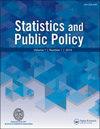What We Relearned and Learned from the 2016 Elections: Comment on Gelman and Azari
IF 1.5
Q2 SOCIAL SCIENCES, MATHEMATICAL METHODS
引用次数: 1
Abstract
How soon we forget, and Gelman and Azari did not mention what baseball legend and language master Yogi Berra would have reminded us regarding the 2016 election polling: (1) “It’s ‘de ja vu’ all over again!” And (2) “...But the similarities are different!” (see Shapiro 2017a). This election hearkened back to the 1936 and especially the 1948 elections in which pollsters—as both pollsters and pundits—demonstrated unadulterated arrogance or hubris. In 1936 the folks atThe LiteraryDigestmagazine flaunted the prediction based on their multiple million ballot straw poll (that had been mailed to their subscribers and names from telephone, car registration and other lists—which had a distinctively upper status bias) that Alfred Landon would defeat President Franklin Roosevelt. The poll had gotten the winner right in every election from 1916 through FDR in 1932, so what could go wrong? Everything, thanks to the political realignment in which lower status voters missed in the straw poll disproportionately broke toward the Democrat Roosevelt. That year the more “scientific” (that is, engaging in something closer, but still far from, probability sampling) pollsters George Gallup, Elmo Roper, and Archibald Crossley predicted an easy Roosevelt victory and put theDigest to shame (it went out of business not long afterward). But Crossley and Gallup—who was then and still is themost famous of the lot—still underestimatedRoosevelt’s vote (60.7%) by fully 7 percentage points (compared to the Digest’s 20 points), and Gallup continued to underestimate Roosevelt’s vote in the next two election. So something was still amiss in the polls. The question of poll accuracy during this time, as the pollsters announced their predictions, got some attention, including calls for congressional investigation of the polls (on this forgotten and not well-remembered point, see especially Fried (2012)我们从2016年选举中学到了什么:评论格尔曼和阿扎里
我们很快就忘记了,格尔曼和阿扎里没有提到棒球传奇人物、语言大师约吉·贝拉(Yogi Berra)在谈到2016年的大选投票时可能会提醒我们的话:“这是‘似曾相识’的重现!”(2)“……但相似之处是不同的!(见Shapiro 2017a)。这次选举让人想起了1936年的选举,尤其是1948年的选举,当时的民意测验专家——无论是民意测验专家还是专家——都表现出了十足的傲慢和傲慢。1936年,《文学文摘》(the literarydigest)杂志的人根据他们的数百万张选票(这些选票是通过电话、汽车登记和其他名单邮寄给他们的订户的——这些名单有明显的上流社会偏见),大肆宣扬阿尔弗雷德·兰登将击败富兰克林·罗斯福总统的预测。从1916年到1932年罗斯福总统的每一次选举,民意调查都是正确的,所以还能出什么差错呢?所有的一切,都要感谢在民意测验中错过的地位较低的选民不成比例地向民主党罗斯福倾斜的政治重组。那一年,更“科学”的民意测验专家乔治·盖洛普(George Gallup)、埃尔莫·罗珀(Elmo Roper)和阿奇博尔德·克罗斯利(Archibald Crossley)预测罗斯福将轻松获胜,这让《文摘》感到羞愧(不久之后它就倒闭了)。但克罗斯利和盖洛普(当时和现在都是最有名的)仍然低估了罗斯福的选票(60.7%)整整7个百分点(相比之下,《文摘》的支持率为20个百分点),盖洛普在接下来的两次选举中继续低估了罗斯福的选票。所以民调还是出了问题。在这段时间里,随着民意测验专家宣布他们的预测,民意调查的准确性问题得到了一些关注,包括要求国会调查民意调查(关于这个被遗忘和不太记得的点,特别见弗里德(2012))。
本文章由计算机程序翻译,如有差异,请以英文原文为准。
求助全文
约1分钟内获得全文
求助全文
来源期刊

Statistics and Public Policy
SOCIAL SCIENCES, MATHEMATICAL METHODS-
CiteScore
3.20
自引率
6.20%
发文量
13
审稿时长
32 weeks
 求助内容:
求助内容: 应助结果提醒方式:
应助结果提醒方式:


